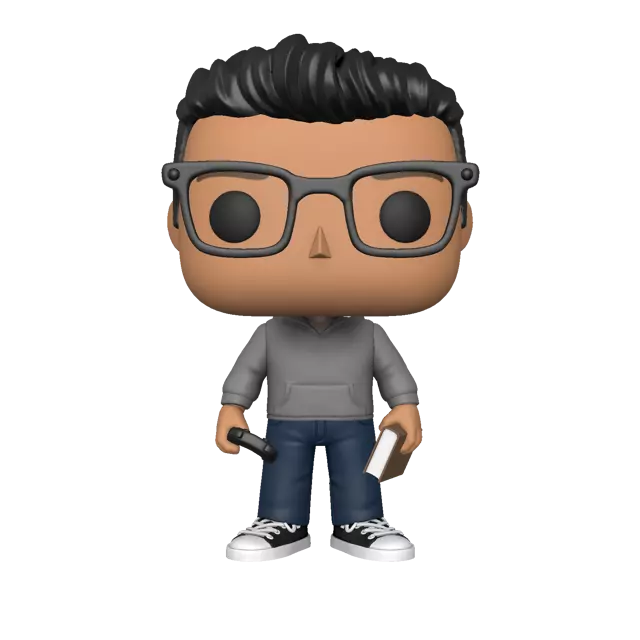I like Language Transfer. It’s free and you can download the episodes for offline listening.
I second this. I have learned four languages aside from my native English, and Language Transfer is easily the most natural and effective system I have ever used.
My wife has a lot of trouble learning languages, but she found Language Transfer very effective as well.
It’s completely free and relies on donations. I have been a monthly donor on Patreon for about 5 years now.
Thanks for supporting and thus making it available for others!
Sadly it only had a very limited number of languages. Maybe I’ll later look at it again
Check with your local public library. A lot of libraries offer online language learning programs.
I’ve enjoyed using Mango. It’s always been free but there’s a paid version now too. It dives right into useful conversation, but gives cultural context before, like formal/informal or when certain phrases are used. It has flash cards built between lessons to help with memorization and you can even record your pronunciation and hear/see the audio clip and how it compares to how you are saying it. It also has the ability to download lessons for offline use. I first used it because it was one of the only apps/websites that specifically taught the Levantine dialect of Arabic not found on other apps.
I don’t recall being paid.
deleted by creator
I checked and I can get Mango through my local library for free. Definitely worth looking into!
I quite like busuu for Spanish so far. It is a lot better than Duolingo trash as it actually explains things rather than just throwing stuff at you that is often incorrect anyway.
Yeah, I was considering Busuu myself but I find that the price for a monthly subscription is hefty.
Other than that, good reccomendation!
They currently have 75% off if that makes a difference to you but I don’t pay for it and have been having a fine time with it just watching a short advert every now and then.
I started using Busuu yesterday: I like it too for the languages they have, and while they don’t have all languages they make up for it with good learning materials.
Though I’m not sure about the inclusive words for French due to my convictions as a Christian.
What do you mean by “I’m not sure about the inclusive words for French due to my convictions as a Christian”?
Oh, there’s a new course on Busuu for French that I don’t like that deals with inclusive terms I’m probably not confortable talking about anymore since they deal with genders and sexuality.
I’m trying to be a Christian instead and not talk about those things in my faith, but that doesn’t mean I’ll be learning what is supposed to be teaching me French with weird terminology.
Nice excuse for your own laziness and immaturity. My advice is to stop learning other languages if you can’t handle the tiniest of opinions. Part of language learning is cultural humility, you’re just a culture pig who needs their feelings coddled.
You have a bad and selfish attitude.
Gesundheit. O_o
Small promotion for [email protected], still a bit small but growing!
Anki is a lot more robust than just about anything else out there. Particularly as a supplement to other learning. I’ve been through a lot of different language learning systems and my anki decks have been a constant throughout.
The best app is whatever you use to consume media in the target language.
The only way to acquire a language is to expose yourself to it in a natural context. You can’t acquire a language just by studying with flashcards or grammar exercises or whatever – any app that offers enhanced versions of those will at best be a minor supplement to actually using the language.
Your comments seems to imply that just using the language is enough to learn it. This is not necesserily true, especially with more complex grammars than english. You need a source to teach you grammar and basic vocabulary, then you use these basics information to roughly understand spoken language and slowly building up your actual vocabulary and consolidate the rules. You cannot skip neither of those two passages
And then, once you’ve built up a decent vocabulary, then you run amok w/ native content.
This is the answer. The answer is Netflix and Youtube. Anything with media using both audio and subtitles in the language you’re trying to learn.
You still need a teacher to get you past learning enough basics of vocabulary and grammar to get started (and no, language learning apps are probably not an effective way past that) but once you have enough basic words and you understand how a sentence is put together the answer is to watch media even if you don’t fully understand what’s being said, paying attention and stopping sometimes to use dictionaries and translators to get you there on sentences you almost get.
I know people who spent years spinning their wheels on learning apps while refusing to sit through media in the target language because they get frustrated or tired by the effort of trying to keep up. It’s a bit annoying, but it really works.
I have never found subtitles to help in learning a language. They have increased my reading speed though.
To be clear about what I’m saying, the setup is subtitles in the same language as the audio. So if you’re learning French you set French audio with French subtitles.
That REALLY helps bind the pronuntiation to the writing and it actually makes it far easier to understand the speech. Assuming you’re reading the subtitles at the same time, of course.
You won’t understand a lot of it, and you’ll have to put up with the frustration of losing the plot often for a while, but it does help, in my experience.
Subtitles in your own native language just make you tune out the audio and read the dialogue. That’s not helpful.
And if you’re not to the level of interpretting natural contexts, and just need to expand your vocabulary I made a very imperfect browser extension to try to help with that
Which language are you trying to learn? There are different answers depending on that.
As someone learning Hindi, I’ve found that Duolingo is wholly insufficient in grammar and vocabulary (the entire course is far too short) and did not concentrate on listening comprehension. I’ve started using a combination of the following:
- Clozemaster for vocabulary in context of (sometimes pretty wild) sentences. (I’ve got a lifetime subscription to Clozemaster, it goes on sale during holidays.) Clozemaster has grouped “common words” and a combination of reading/listening skill and multiple choice / vocab word transcription / entire sentence transcription. It feels very overwhelming at first as you’re just thrown in but keep at it - start with reading and multiple choice and once you know the words and sentences in your grouped section start typing them out via listening.
- A combination of textbooks and websites to explain certain grammatical concepts.
- A listening-based podcast, example Innovative Language, for listening comprehension. (This also goes on sale regularly.)
Self-reply: looks like Clozemaster Pro now has a ChatGPT-enabled “Explain” feature which is extremely helpful and breaks down the sentences. You can do this on your own with ChatGPT of course, copying sentences in and asking (I have done this), but it’s nice to have the option embedded in.
Hindi, huh? Thanks for the suggestion.
For Japanese specifically, I’m using Renshuu (free) and Wanikani for kanji ($9/mo) and loving both of them.
The most important factor in language learning is consistency. So try to find something that is fun and engaging for you. Anki for vocab + textbooks or youtube lectures for grammar is one of the cheapest options.
I’ve been using Lingodeer for Chinese and I think it’s been going quite well.
I got a lifetime purchase of Lingodeer a while back, for super cheap during a back to school type sale I want to say in the $70 range. I’m trying to learn German but it has a good number of available languages. I’m not sure how it compares to other apps but I find it works well enough for me
Have you tried Seedlang? That’s been my favorite so far.
I have not, no. Are you using it for German?
Yep. Not as much as I should.
I don’t think you can really have both, lol. Try Rosetta Stone.
deleted by creator
Your answer is probably going to depend on the language and your learning style and preferences.
Personally I’ve found Duolingo to work pretty well as an English speaker learning esperanto, I can also recommend Lernu if you happen to be interested in esperanto. I’ve personally never had much luck learning other languages no matter how I try so I can’t really offer any recommendations for other languages, but it’s probably worth to keep in mind that what does or doesn’t work for others may be different for you, so don’t be afraid to try out some different programs to see what works best for you












